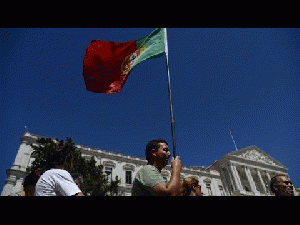Reprinted from Dispatches From The Edge
Within a week, Europe will face one of the most serious challenges to democracy it has seen in many decades. On Nov. 10 Portugal's minority rightwing government will likely lose a vote of confidence, initiating a series of events that will determine whether voters in the European Union (EU) still have the right to a government of their own choosing.
The crisis was set off by the Oct. 4 elections that saw the rightwing Forward Portugal coalition, which has overseen austerity policies that have driven 20 percent of the population below the poverty line, lose its majority in the parliament to three parties on the left, the Socialist Party, the Left Bloc, and a Communist/Green alliance.
Forward Portugal, an alliance of the Social Democratic Party and the Popular Party, lost 28 seats in the election, dropping from 135 seats to 107. The left parties, meanwhile, won over 50 percent of the vote and picked up 25 seats, for a total of 122. An animal rights party won one seat.
The Portuguese parliament has 230 seats. A majority is 116 seats.
Instead of asking the left if it could form a government, however, on Oct. 23, Portuguese president Cavaco Silva -- a former prime minister for the Social Democratic Party -- reappointed the rightwing alliance's leader, Pedro Coelho as prime minister.
Silva went further, however, delivering an incendiary speech in which he declared that he would never appoint "anti-European forces" to run the government, and denouncing parties on the left for opposing the North Atlantic Treaty Organization (NATO) and the common currency, the euro.
"It is my duty, within the constitutional powers, to do everything possible to prevent false signals being sent to financial institutions, investors and markets," he concluded.
The speech has set off a firestorm in Portugal, one that is reverberating throughout the EU. It is one thing for the EU and its financial enforcer, the Troika -- the European Commission, the European Central Bank, and the International Monetary Fund -- to exert pressure on a country from the outside. It has done exactly that in Greece. It is quite another to say that a particular political or economic program is beyond the pale.
(Note: You can view every article as one long page if you sign up as an Advocate Member, or higher).






